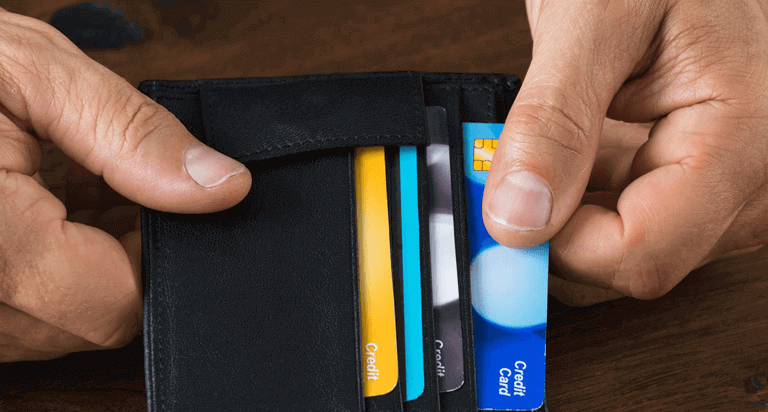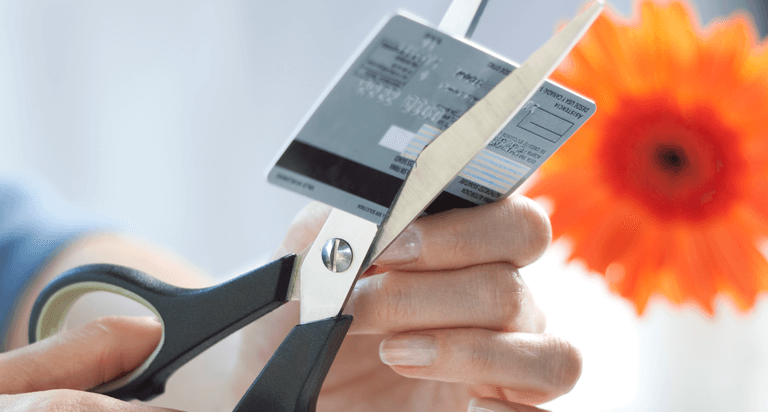How Many Credit Cards Should I Have?
Highlights:
- It's generally recommended that you have two to three credit card accounts at a time, in addition to other types of credit.
- Remember that your total available credit and your debt to credit ratio can impact your credit scores.
- If you have more than three credit cards, it may be hard to keep track of monthly payments. Missing payments can result in fees and lowered credit scores.
There's not a one-size-fits-all solution for the number of credit cards a person should own. However, it's generally a good idea to have two or three active credit card accounts, in addition to other types of credit such as student loans, an auto loan or a mortgage.
Just remember: The number of credit cards you own is less important than how you use them. Be sure that you can keep up with your existing monthly payments before considering a new credit card.
Is it good to have multiple credit cards?
Having multiple credit cards, along with other types of credit, can be a good thing, as long as you use each one responsibly.
Two factors that contribute to your credit score are the number and type of credit accounts. If your goal is to get or maintain a good credit score, two to three credit card accounts, in addition to other types of credit, are generally recommended. This combination may help you improve your credit mix.
Lenders and creditors like to see a wide variety of credit types on your credit report. Keeping up with multiple credit accounts suggests to lenders that you understand how credit works and know how to manage the amounts you borrow.
Many credit cards also offer borrowers access to special rewards programs. These might include cashback options for certain purchases, travel benefits or other types of rewards.
How multiple credit cards affect your credit score
Having multiple credit cards can indirectly impact your credit scores by lowering your debt to credit ratio—also known as your credit utilization rate.
Your credit utilization rate is the amount of credit you use compared to the total credit available to you. Lenders usually like to see a credit utilization rate below 30 percent. A rate higher than 30 percent may negatively affect your credit scores.
When you open a new credit card, you increase the total credit available to you. That means you'll be able to spend more before hitting that 30 percent credit utilization rate. If your rate is already at or above 30 percent, opening a new card could improve your credit scores by lowering your credit utilization rate.
However, the most important thing to do with multiple credit cards is to keep up with what you owe. Be sure to monitor how much you spend on each credit card and the payment due dates so that you don't go into credit card debt, pay high interest rates or get charged fees for missing a payment. It's also a good idea to pay off your credit card balances in full each month instead of only making the minimum payment.
Issues with having multiple credit cards
Despite the potential benefits, owning multiple credit cards is not without its downsides. The biggest risk is that you can easily spend more in credit than you're able to repay in cash. Plus, keeping track of multiple credit cards — all with different interest rates, due dates, minimum payments and other fees — can become overwhelming.
Additionally, charge offs, late payments and high credit utilization rates can create negative marks on your credit reports if you are not careful.
Before opening a new credit card account, be sure that you're ready for the additional financial responsibility. Keep an eye on your spending habits and find ways to organize your finances.
How often should you apply for a credit card?
It's true that keeping multiple credit cards can sometimes benefit your credit scores. But that doesn't mean you should apply for more credit than you can reasonably use.
When you apply for a new credit card, a lender will request a copy of your credit report from one or more of the nationwide consumer reporting agencies (Equifax, TransUnion and Experian) as part of the application. This process is known as a hard inquiry. Too many hard inquiries over a short period of time can be a red flag to lenders and lower your credit scores.
Why? Because applying for multiple credit cards may suggest that you're spreading yourself too thin and taking on more credit than you can reasonably repay.
Apply for a new credit card when you feel it makes sense for your overall financial situation.
How many credit cards are too many?
Owning more than two or three credit cards can become unmanageable for many people. However, your credit needs and financial situation are unique, so there's no hard and fast rule about how many credit cards are too many.
The important thing is to make sure that you use your credit cards responsibly.
Here are some things you should remember about credit, especially if you have multiple credit cards:
- Keep an eye on your balances.
- Avoid late payment fees by paying on or before the due date.
- If possible, pay off your credit card balances in full instead of only making the minimum payment.
- Check your credit reports frequently so that you see what lenders see.
With a free myEquifax account, you can check your Equifax credit report. You can get free credit reports at annualcreditreport.com.

Sign up for a credit monitoring & ID theft protection product today!
For $19.95 per month, you can know where you stand with access to your 3-bureau credit report. Sign up for Equifax CompleteTM Premier today!



